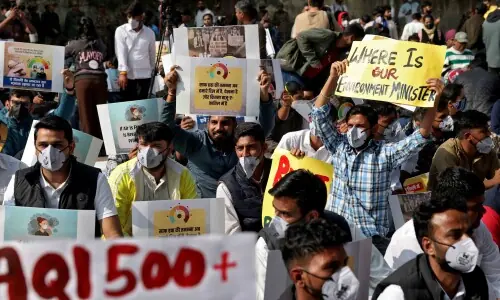
NEW DELHI: A fourth round of talks between the Indian government and 40 farmers’ unions over divisive farm laws failed to make headway on Thursday, but a cabinet minister said they would continue discussions on Saturday.
In India’s biggest farm unrest in years, tens of thousands of growers are protesting on the outskirts of the capital Delhi against the laws seeking to rid the sector of antiquated procurement procedures and allow farmers to sell to institutional buyers and big international retailers.
Finance Minister Nirmala Sitharaman said the government will engage with the protesting farmers and look into their concerns, and defended the laws.
“The farm sector acts was not done in a jiffy. Consultations were held over the years, parliamentary committees have discussed it,” Sitharaman told the Reuters Global Investment Outlook Summit.
The farmers, who form a powerful political constituency, fear the laws passed in September could see the government stop buying grains at guaranteed prices, leaving them at the mercy of private buyers.
India’s Agriculture & Farmers Welfare Minister Narendra Singh Tomar said Thursday’s talks, which lasted seven hours, were cordial and the government was sympathetic.
“We addressed the issues raised by them and we are going to meet again on the 5th,” Tomar told reporters.
He added the government would continue the guaranteed price system, but farm leaders have previously sought a written assurance.
“The government did propose amendments to the laws but farmers unions still insisted on taking these laws back,” said Kavitha Kuruganti, a leader of the farmers’ group All India Kisan Sangarsh Coordination Committee.
Prime Minister Narendra Modi’s government has defended the new laws, and said they only give an option to farmers to sell to private buyers.
Still, the protests pose a crucial test for Modi’s ability to reform India’s vast agriculture sector, which makes up nearly 15% of the country’s $2.9 trillion economy and employs around half of its 1.3 billion people.
“We humbly request you to pay heed to the voice of farmers and withdraw completely the implementation of these Acts,” Avik Saha, another farmers’ leader, wrote to the government.
“The issue is not about one particular clause, but about the direction in which the government of India is pushing farming in India,” Saha wrote.
Published in Dawn, December 4th, 2020


































